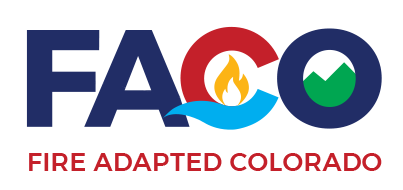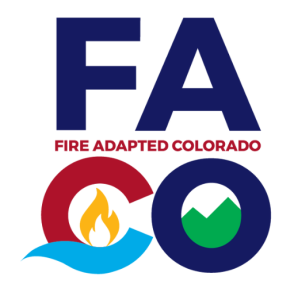Re-enforcing Resiliency at All Levels
“Community resilience is the sustainability of a community to use available resources to respond to, withstand and recover from adverse situations.” (Wikipedia)
National Level
At the national level, the Columbia Climate School and Headwater Economics released “Missing the Mark: Effectiveness and funding in Community Wildfire Resilience.” This report finds that the most effective strategies for reducing community wildfire risk, those that manage the built environment, tend to receive the least funding and policy support when compared to suppression or fuel management strategies.
State Level
Local Level
A resilient Colorado relies on local efforts to leverage these state and national resources with local resources and strategies. During FACO’s monthly network call, network participants shared the positive impact of recent projects supported by FACO Opportunity Fund awards. These micro-sized grants support gaps and hard-to-fund projects in Colorado communities. Maya, with Boulder Watershed Collective, shared about their project with the Youth Corps in Gold Hill including installing gravel aprons around homes and inoculating wood chips with fungi spores in an effort to hasten decomposition of the biomass from vegetation removal. Lara, with Coalition for the Upper South Platte, shared their experience training Mile High Youth Corps crew leaders in more advanced tree-felling skills to increase capabilities to achieve project scopes of work. Dorie, with Genesee Fire Rescue, spoke about their hazardous vegetation removal Slash Drop-off events. She’s leveraging partnerships with neighborhood leaders, local composting, and a church toward a more effective program.
FACO Conversations
“The definition of insanity is doing the same thing over and over and expecting different results”. -Albert Einstein.

